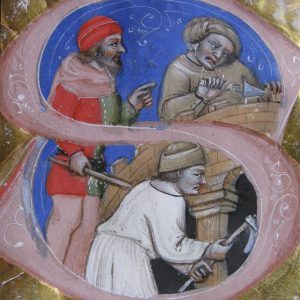About the Project
Public health is often thought of as a by-product of modernity, yet historical evidence shows that numerous stakeholders in medieval Europe took steps to reduce risks and improve health incomes. The ERC project “Healthscaping Urban Europe: Bio-Power, Space and Society, 1200-1500” (grant no. 724114) explores this idea by bringing together a group of historians and archaeologists of the era to explore how urban residents in two of Europe’s most urbanized regions – Italy and the Low Countries – thought about and pursued population-level health.
The project integrates written, visual and material sources with archaeological data to examine preventative health interventions, suggesting that these were well developed before the onset of the Black Death (1346-1353).
The integration of sources in Geographical Information System for Bologna (Italy) and Ghent (Belgium) allows us to delve deeper into the socio-spatial mechanisms that influenced public health related measures in these cities.
